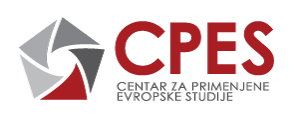Gift vouchers (2022)
As the newly elected mayor of Belgrade, Aleksandar Šapić, announced immediately after taking office, at the end of 2022, a public procurement was carried out, the subject of which was the production, delivery and realization of 350,000 multi-purpose vouchers with an individual value of 6,000.00 dinars for children aged 0-18, as well as for all employees in preschool institutions, primary and secondary schools in the territory of the city of Belgrade. The gift vouchers in question are intended for the purchase of clothing (winter and summer), footwear (winter and summer), school equipment and equipment for sports, recreation and entertainment (backpacks, bags, party games, toys and other related goods), and are to be used not later than March 1, 2023.
And while the very idea of handing out gift vouchers is not so controversial, the manner in which the procurement was carried out undoubtedly is. Namely, the job of creating, delivering, and realizing gift vouchers was entrusted to the favored bidder “Sport vision” d.o.o., in a procedure in which competition was almost non-existent.
First of all, the competition was limited by the contracting authority’s refusal to divide the procurement into lots (even though vouchers were procured for the purchase of various goods – footwear, clothing, equipment for sports, recreation and entertainment), but also by the fact that the maximum allowed amount of turnover was prescribed as the minimum financial and economic capacity for bidder participation.
Although the division of procurement items into lots is not an obligation for the contracting authority, it is important to point out that it can significantly impact the competition, since it facilitates the participation of small and medium-sized enterprises. In the absence of division by lot, small and medium-sized enterprises either cannot offer all the items requested in the procurement or do not have sufficient capacity needed for the entire procurement, so they are prevented from participating in the procedure. In this regard, it is impossible to accept the explanation of the contracting authority that the subject of the procurement was not divided into lots in order to avoid the danger that no business entity would submit an offer for certain lots, which would leave part of the beneficiaries without vouchers. The possibility that no offer is submitted always exists, even in the case when the subject of procurement is formed as a whole. It is precisely the examination of the market that precedes the public procurement and, in accordance with that, the formulation of conditions that enable as broad competition as possible, that should reduce this possibility to the smallest possible extent. At the same time, it is hard to believe that there are more potential bidders who have sneakers, sweatshirts, backpacks, board games and toys in their assortment than bidders who can offer each of these items individually.
Additionally, the contracting authority limited the by setting a minimum annual turnover of a whopping 3.5 billion dinars as a condition for the bidder’s participation in the procedure. The law stipulates that the minimum financial and economic capacity must not be higher than twice the estimated value of the public procurement, which means that in this particular case the contracting authority has set the highest possible amount of the minimum capacity. Bearing in mind the subject of the specific public procurement, its importance is not such as to justify the requirement of minimum annual turnover of bidders in the amount of over 30 million euros. Therefore, it is completely clear that this request is disproportionate to the subject of the procurement, i.e. that it limits competition to a significant extent.
Also, it is important to note that the contracting authority used the legal possibility and additionally shortened the minimum 35 days deadline for submitting bids by additional 4 days (out of the allowed 5 days). This may also indicate that an advantage was given to the bidder who was already prepared and familiar with the procurement in question.
As an epilogue to the procedure carried out in this way, the contract was awarded to the bidder “Sport vision” d.o.o. whose offer was 35 million dinars higher than the estimated value of the public procurement, and 420 million dinars more expensive than the only remaining offer given by the “Đak sport” d.o.o. The offer of this second bidder was rejected as unacceptable, with the explanation that he did not submit all the required means of security for the seriousness of the offer.
During the execution of the contract, the originally agreed price was increased by another 10% (from 1,785,000,000.00 dinars to 1,963,500,000.00 dinars) due to the need for a larger number of vouchers.
Finally, it should be said that from the moment when the public invitation for the public procurement in question was announced, both the public and potential bidders agreed without exception that it was “tailored” precisely for the bidder “Sport vision” d.o.o. In addition to the discriminatory conditions for participation in the procedure, doubt about such claims was certainly fueled by the fact that a year earlier the contract for gift vouchers was awarded to the same bidder, in the public procurement procedure carried out by the municipality of Novi Beograd, which at that time was headed by Aleksandar Šapić.




